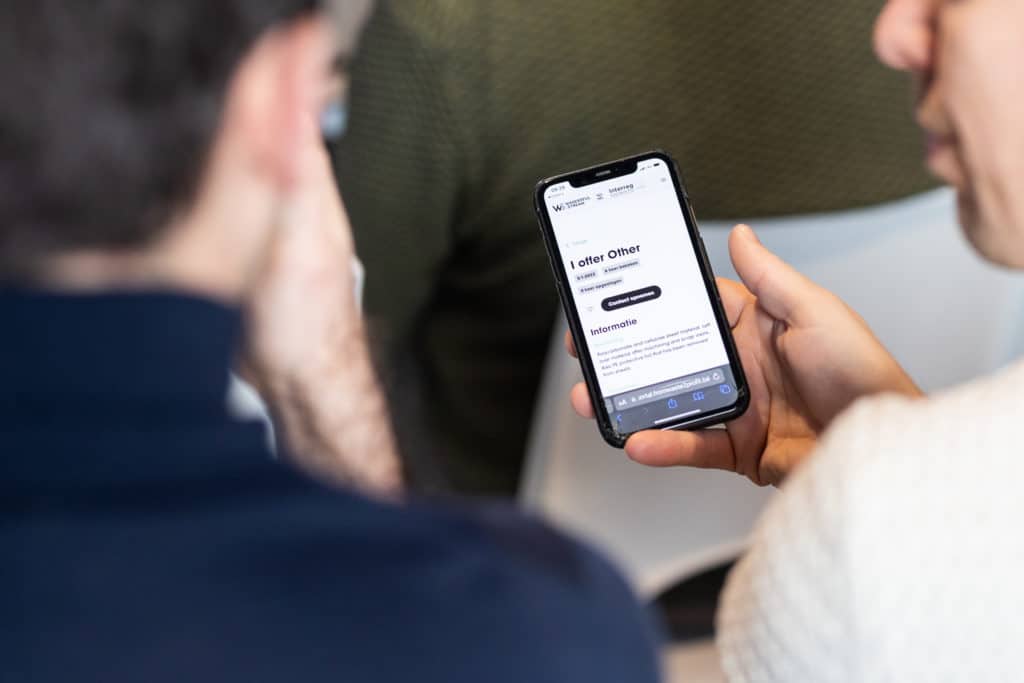
On 18 January, From Waste 2 Profit’s matchmaking platform was introduced to the world. A Euro-regional digital platform that matches companies to each other, on which they can offer and/or find remnant streams via a free account. During the event, participants were inspired by three incredible case studies by three even more incredible entrepreneurs.
Reducing ecological footprint
Companies are increasingly aware of the carbon footprint of their raw materials and many are looking for ways to reduce it. This change in behaviour does not just stem from a growing awareness of climate issues. Stricter legislation and changing market conditions are also forcing companies to buy more environmentally friendly products.
Of course, the most environmentally friendly resource is the one you don’t use. Secondly, recycling enables you to keep your footprint as small as possible. And that’s where our matchmaking platform lends a hand. You create a free account, create an offer or demand search and find your match.
3 display examples
At the platform’s presentation on 18 January, we were told by three seasoned entrepreneurs why circularity is important. Wim Martens, founder of Recupwood, has found a business opportunity in circularity. “Recupwood transforms discarded wooden paloxes, for example, into sanded, straight planks. We deliberately don’t turn them into finished products, so that the wood still has many processing possibilities,” he says. Circular thinking at its best!
Lieven Engelen, managing director of White Light, is also very aware of their waste management. White Light is a specialist printing company that prints in all kinds of formats and on all kinds of materials. Lieven Engelen: “We minimise cutting losses thanks to software that combines the surfaces of different designs. We believe there are still opportunities for progress. This is why we see clear added value in the matchmaking tool. Companies are able to exchange not only materials, but also expertise.”
Finally, Saartje Boutsen, co-founder of Studio D, guided participants with practical issues. Going circular offers opportunities, but often requires a conversion of business processes. Saartje Boutsen: “A scenario analysis is a useful tool to find out what the opportunities and risks are. This provides inspiration for developing a (sustainability) strategy, a necessary exercise of which circularity is an important part.”
Keen to get started with your waste management yourself?
Keen to get started on improving your waste management yourself? Do you have a remnant stream or are you looking for a raw material? Then be sure to take a look at our matchmaking platform and limit your impact on the environment as a company.